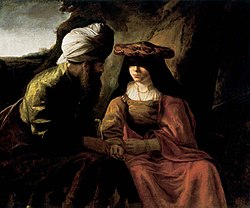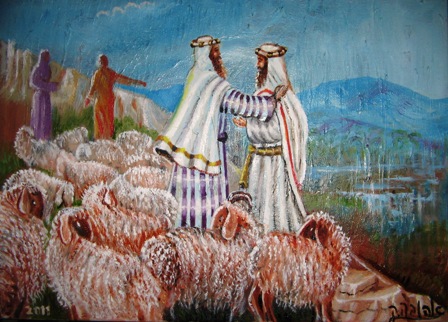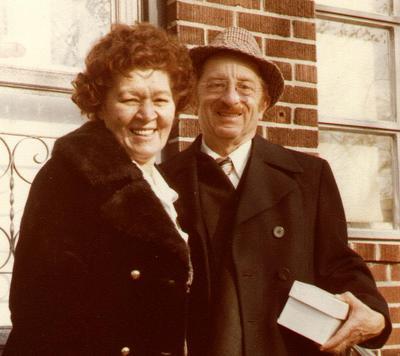In a
previous post, I described the meeting that I had with the secular couple whose wedding I was to officiate at as a representative of Tzohar. This week, I performed the wedding, which for me was a tremendous experience. I'll explain why.
The first thing that you realize immediately is that secular weddings, while they have much in common with religious weddings, are also quite different. That became clear as soon as I arrived.
I actually came right on time, and made my way to the bridal suite to wish the bride Mazal Tov (and to let them know that I had indeed arrived.) Entering the room, two things struck me immediately. They had just finished a full meal, and were resting before the wedding, and the bride's dress - a strapless wedding gown - wasn't what I was accustomed to. We had discussed the matter of modesty during our meeting at my house, but I didn't remember what we had concluded, and while I tried to maintain a cool exterior, I wasn't entirely sure what to do. I quickly began to think of the stories that I had heard of Rav Soloveitchik conducting a chuppah with his head buried in a siddur. In fact, the kallah had "sleeves" that went with the dress, which she wasn't wearing it at the time. All worked out in the end.
On to the Chosson's Tish. Oh, that's right. There isn't one.
When I finally found the groom (who was practicing a song he had written for his bride with the band), he had to find the caterer, who was holding on to the Ketubah (which the couple picks up from Tzohar and brings to the wedding.) When we finally located him, he brought the ketubah and we sat down to fill out the necessary forms. The caterer kept pestering me about how long the chuppah would take. When I joked that my speech wouldn't be more than twenty minutes, he didn't laugh.
There is no Tenaim (which is a completely unnecessary ritual), so we sat down on some couches (and they pulled over a coffee table so that I could write) while I filled in the Ketubah and associated forms. We called the witnesses (friends of the groom's father), and they watched and waited while I filled in the Ketubah. It took about ten minutes. I had hoped to be able to do this on my own before everyone else showed up, but no luck. Nothing like trying to make small talk while filling in important halachic documents.
When I finished, the witnesses signed, we did a "kinyan" and that was it. Oh, sorry - the photographers then came by. So we did it all again so that they go their "shot." That actually happened a number of times. And they asked me to move out of the way during the chuppah so that they could video. ("
Harav, you're blocking the shot!") And they yelled at me for having him break the glass before they were ready (so they made the groom stomp his foot again).
On to the Chuppah!
Like religious weddings, the groom and bride walked down to music that they had chosen - played by the DJ. But the bride had also recorded a beautiful message/prayer to the groom that they played as she walked towards the chuppah. It was quite lovely, and made me wonder whether religious weddings follow the "script" of what your "supposed" to do a bit too closely. Eventually they made their way to the chuppah, and we were ready to go.
Once there, I quickly realized that I had neglected a critical aspect of training to perform the wedding: juggling. Really. God blessed me with two hands, but I had to hold the cup of wine, the card with the brachot, and also the microphone. (when I held it too far during the first brachah, the video guy rushed up to me to tell me to hold it closer. "
Harav - bkol ram!" Those who know me know that I usually don't have any trouble making myself heard.) I spent the rest of the chuppah spilling the wine, and moving cards, cups and the mike from hand to hand as I tried to navigate my way through the ceremony.
The rest went off like any other chuppah. I made the brachot. The couple drank. He gave her a ring. She took it. I read a bit of the Ketubah, and he gave it to her. (The photographer then had them hold it up together under the chuppah, grinning.) I said a short dvar Torah, which I hope went over well. Then we called up friends and family for the Sheva Brachot, and it was over.
The family was great. They really appreciated my being there and doing the wedding, and when the groom's father, who himself is religious, asked me whether he owed me anything, I felt wonderful telling him that he did not, and was happy to volunteer.
In truth, it's not a simple matter. Tzohar rabbis take no money for the weddings which they perform, and many people, while admiring the altruism, wonder whether it's really fair. After all, if the couple is paying tens, if not hundreds of thousands of shekels on everything else, from the food to the photographer to the video, why should the rabbi's time be free?
Thankfully, I'm in a position where I don't need to live off of performing weddings, so I was glad to perform the wedding as a chessed for the Jewish people. I feel that I'm helping (and interacting with) a population I would never otherwise meet, and came away enriched by the experience.
While I was walking away from the chuppah, the groom's brother in law (who is also religious) came over and told me a wonderful Dvar Torah.
Why are we called "Yehudim" (Jews)? he asked me. The answer is because we come from the tribe of Yehudah. And Yehudah's mother gave him that name because she wanted to express her thanks to God for having a fourth son. Realizing that she was one of Ya'akov's four wives and that there would be twelve tribes, when she had her fourth son, she felt a great sense of thanks that she merited to have her "allotment" of sons. So she said, הפעם אודה את ה - "for this [child] I will thank God". We are called Yehudim (Jews) because we carry on this trait of giving thanks, and appreciate the goodness of others.
"And that", he told me, "is why I'm thanking you for what you did tonight."
Driving away from the wedding, I kept thinking about my early rabbinic career in West Hartford, CT. It was an older shul and many of the members were senior citizens, and I came to know a funeral director in town who happened to also be a member. (come to think of it, that might be why he joined...but I digress.) I did a lot of funerals during those years, both of shul members and also of non-members. And while most brought in some money, I remember doing a few for free - and especially remember one for a lonely Jew who died without any friends or relatives. We buried him almost entirely by ourselves.
Driving away from the wedding last night, I couldn't help but think that while in America I did chessed by conducting funerals, here in Israel, I do chessed by doing weddings. I drove away feeling more Israeli than I have in a while; more connected to the country that I moved to over five years ago, but only now am beginning to give back to in a meaningful and important way.

































